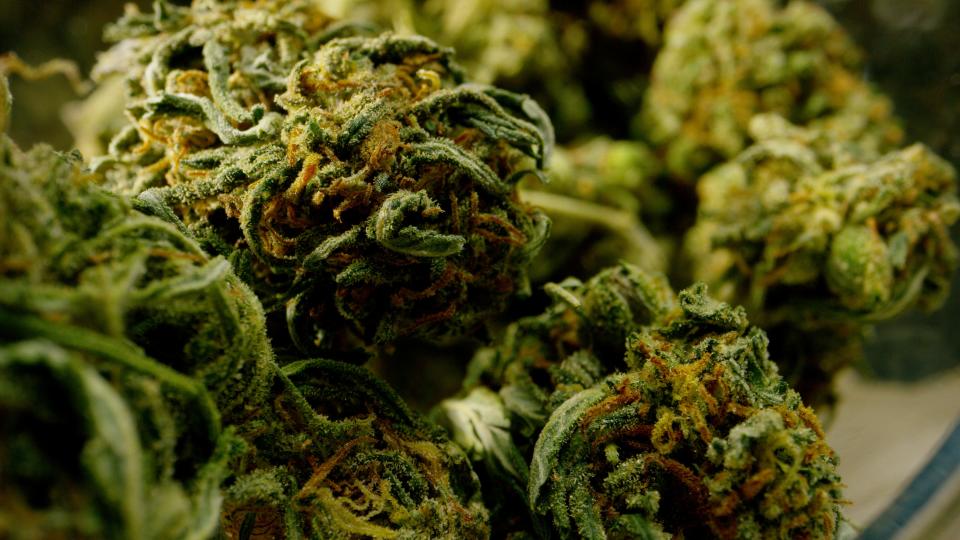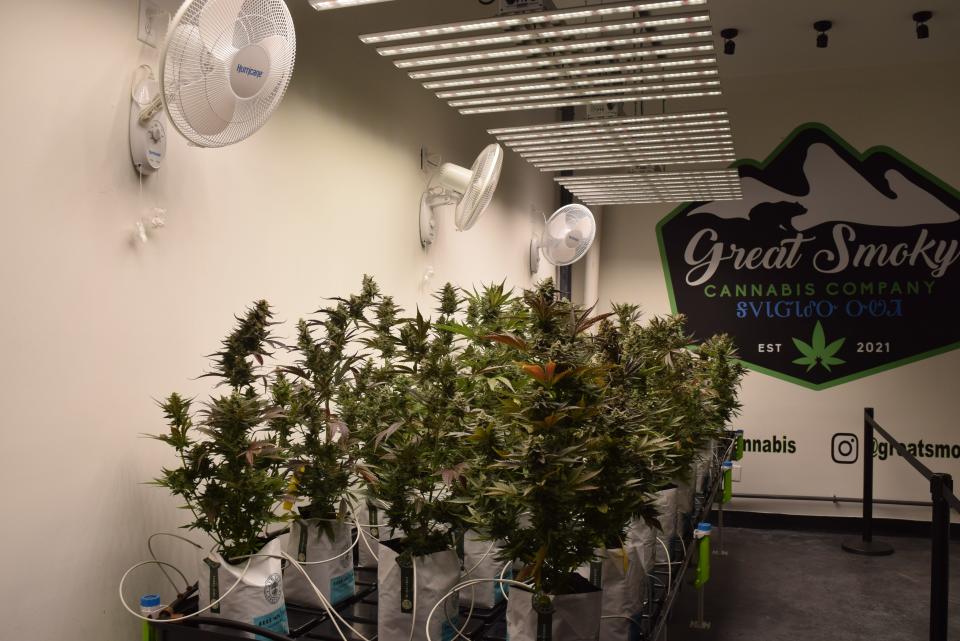Biden moves to reclassify marijuana: Would weed be legal in North Carolina?
President Joe Biden directed a review of how marijuana is classified in 2022. Last year, the Department of Health and Human Services recommended that it be rescheduled to Schedule III.
On Thursday, May 16, Biden posted a video to X, formerly known as Twitter, reinforcing his support of the potential reclassification and saying the Department of Justice would be reclassifying marijuana.
The reclassification would mean, among other things, that marijuana and THC products could be prescribed as medication on a federally legal level. Biden has also stressed the importance of discontinuing the practice of federal punishment for marijuana possession.
"Today, my Administration took a major step to reclassify marijuana from a Schedule I drug to a Schedule III drug," Biden said. "It's an important move toward reversing longstanding inequities. Today's announcement builds on the work we've already done to pardon a record number of federal offenses for simple possession of marijuana."
More: Is medical marijuana legal in North Carolina? What to know about NC's first dispensary
What is the current federal law on marijuana? What's changing?

The president's order has the potential to change marijuana from a Schedule I drug — a classification for highly dangerous, addictive drugs without medical use — to a Schedule III drug, meaning it could become federally legal to prescribe marijuana as medication.
Though this wouldn't mean marijuana would be completely legal at a federal level, the classification would place the plant in the same category as drugs like anabolic steroids and ketamine. In his initial 2022 statement, Biden mentioned the fact that marijuana is currently placed in a schedule higher than the classification of fentanyl and methamphetamine, which he called "the drugs that are driving our overdose epidemic."
In the same initial statement, Biden committed to three steps towards ending what he called a "failed approach" to regulating marijuana. The steps were:
Announcing a pardon of all prior Federal offenses of simple possession of marijuana and directing the Attorney General to develop a process for issuing certificates of pardon to eligible individuals.
Urging all governors to do the same with regard to state offenses.
Asking the secretary of the HHS and attorney general to initiate the administrative process of expeditiously reviewing how marijuana is scheduled under federal law.
In Biden's May 16 announcement he reasserted this commitment, condemning the practice of jailing any person for simple possession of marijuana.
"I'm committed to righting these wrongs," Biden said. "You have my word on it."
More: Marijuana legalization may be on the ballot in these four states in 2024
Is marijuana legal in North Carolina?

Marijuana is not legal for recreational use in N.C. It can technically be prescribed in some specific cases in patients with severe seizures but is otherwise illegal for medical use, as well.
However, it is legal for medical use on the Qualla Boundary, home of the Eastern Band of Cherokee Indians. In 2021, marijuana was legalized for medical use in Cherokee, a sovereign nation located on the Qualla Boundary with its own elections, laws, government, and self-governed and autonomous institutions. However, those laws pertain only to tribal land.
Outside of the Qualla Boundary, some low-THC products have been legalized in N.C. under a 2021 state law. The law allows the sale of products with no more than 0.3% delta-9, allowing the sale of cannabinoids like THC and CBD.
More: As NC's 1st cannabis dispensary opens, Cherokee Co. DA to 'continue to enforce state law'
Would the change make weed legal in NC?
Regardless of its classification at a federal level, marijuana remains illegal in North Carolina. The General Assembly and Gov. Roy Cooper would have to pass a law legalizing it in order for cannabis to be legal in N.C.
Which states have legalized cannabis?
At 24 states, nearly half of the U.S. has now legalized marijuana, as reported by USA TODAY. Here's a list of states that allow recreational cannabis use and the year it was legalized:
Ohio: 2023
Minnesota: 2023
Delaware: 2023
Rhode Island: 2022
Maryland: 2022
Missouri: 2022
Connecticut: 2021
New Mexico: 2021
New York: 2021
Virginia: 2021
Arizona: 2020
Montana: 2020
New Jersey: 2020
Vermont: 2020
Illinois: 2019
Michigan: 2018
California: 2016
Maine: 2016
Massachusetts: 2016
Nevada: 2016
District of Columbia: 2014
Alaska: 2014
Oregon: 2014
Colorado: 2012
Washington: 2012
Iris Seaton is the trending news reporter for the Asheville Citizen Times, part of the USA TODAY Network. Reach her at [email protected].
This article originally appeared on Asheville Citizen Times: Biden announces marijuana reclassification: Would weed be legal in NC?
